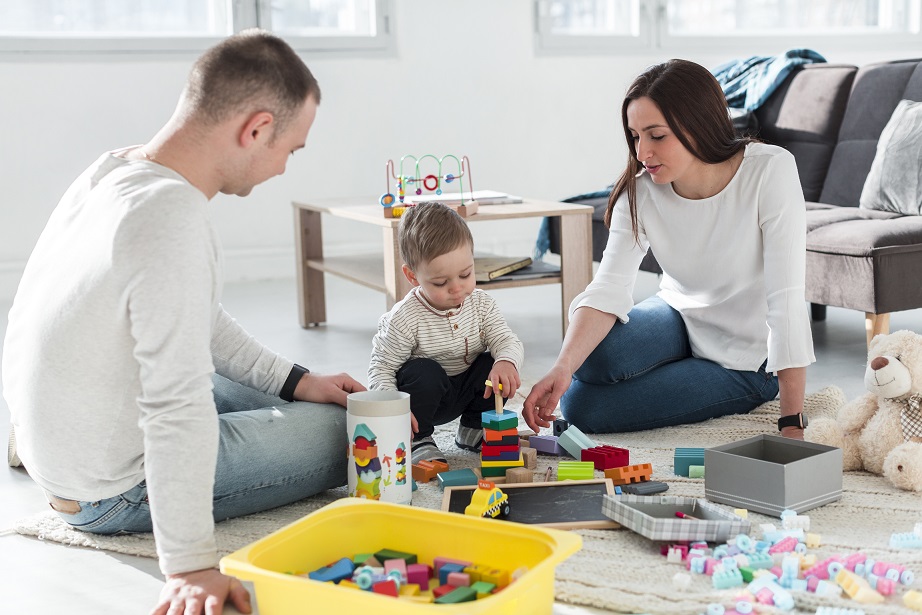Parenting is about raising a child to be happy, to thrive, and to succeed. But no one said it was going to be easy…
Our notion of “good parenting” emerges from a melting pot of influences: memories of our childhood, observing other parents (real and fictional!), and advice from family, friends, baby books, and health professionals. That’s a huge amount of information to process, complicated by some of it being contradictory. Our job as parents is to figure out what’s useful and what’s not—it’s a tough job.
Anthropologists have studied parenting styles in order to understand how societies work, such is the influence you, as parents, have. One study looked at parental control in Italian (strict), French (moderate), and Canadian (lenient) families and correlated it with adult values in those societies. Italian society has respect for authority and a strong sense of family obligation, while the Canadians value democratic principles, independence, and negotiation.
Psychologist Diana Baumrind identified three styles of parenting in the 1960s, which still ring true in many Western societies today:
- Strict, or “authoritarian” parents value obedience and dictate how their children behave. They have high expectations of achievement and will punish for transgressions to the rules. Not much affection is displayed.
- Relaxed, or “authoritative” parents set clear behavior guidelines, but explain why and listen to their children. When rules are broken, these parents tend to reason things through and react in an affectionate way.
- Liberal, or “permissive” parents do not set boundaries, instead allowing children to regulate themselves. They avoid confrontation, regarding the parent–child relationship as equal. They are very affectionate.
So, what are the qualities we want for our children? Most parents value independence, self-reliance, self-expression, and achievement, and research suggests that the middle way—“authoritative” parenting—produces these qualities.
According to one 2012 study, authoritarian parents are most likely to end up with disrespectful, delinquent children. A 2010 study concluded that Spanish children thrived with permissive parents.
Researchers attributed this to the low value put on hierarchical relationships in Spanish society. Other academics believe that, short of neglect, any parenting style works. Most likely, most of us juggle a combination of all three approaches.
Try not to label yourself. You might choose to be strict on discipline, but relaxed about household chaos, and that might all change as your child gets older.
Every culture thinks its way is best, although there is huge variety in how we deal even with the basic childhood needs of food, sleep, and attachment (holding and soothing your child). In the US and UK, babies and children often have separate mealtimes, but this isolation from adult society is frowned on in many other countries. In parts of Africa, toddlers are given household chores, whereas Ache children in Paraguay are carried until they are five. In Japan, babies are expected to be content spending quiet time with mother, while in the US stimulation starts early with baby IQ development and lots of verbal interaction.
The best way to figure out what type of parenting feels good to you is to observe your natural inclinations and reactions. Where do you think your ideas come from and can you pinpoint specific situations in your childhood that illustrate this? Think about what you can borrow from others: would you like the whole-family mealtimes of your Italian friend and the organization skills of your grandmother?
Parenting is complicated by the fact that there are usually two parents, even if you parent alone. You might have similar backgrounds, but your partner and his or her family probably have different expectations about behavior, bedtime, child care, and education.
Embrace the collaborative possibilities: you’re making a new family and have the opportunity to remake who you are and want to become. Let’s not forget your child’s temperament. How might your child respond to the parenting style that feels right for you?
Philosopher Rudolf Steiner (founder of the Waldorf education system) identified that children respond to different parenting and teaching styles:
- Introverted, thoughtful children may lack body awareness and need a sympathetic approach.
- Relaxed, quiet children with inner well-being need a calm, strong approach.
- Social children who are distracted by sensations and ideas need friendly interest.
- Ambitious leaders with a forceful personality type need a firm approach.
Since every society is constantly evolving, so the parenting goalposts are always moving.
Not every child is so easily labeled, and may vary from one “personality type” from day to day, but it does give you an idea of how parents may need to vary their approach.
As your child grows, new situations will test your strategies as you try to balance your child’s needs with those of your family and society.
Parenting takes time, lots of sifting through information, and a good deal of talking with your family and friends. And once you think you have it all figured out, your next child comes along and might be completely different. Back to the drawing board then.
